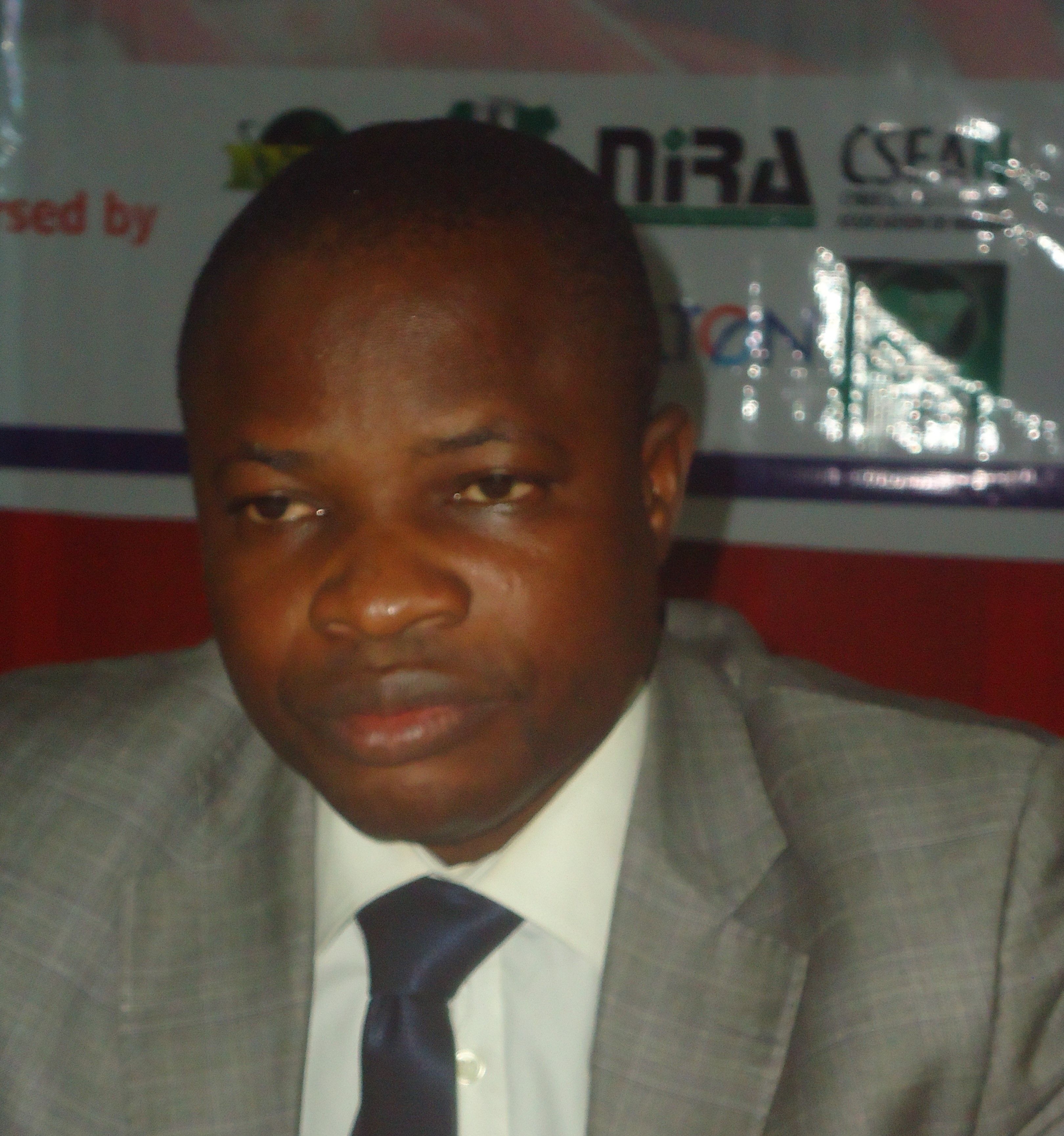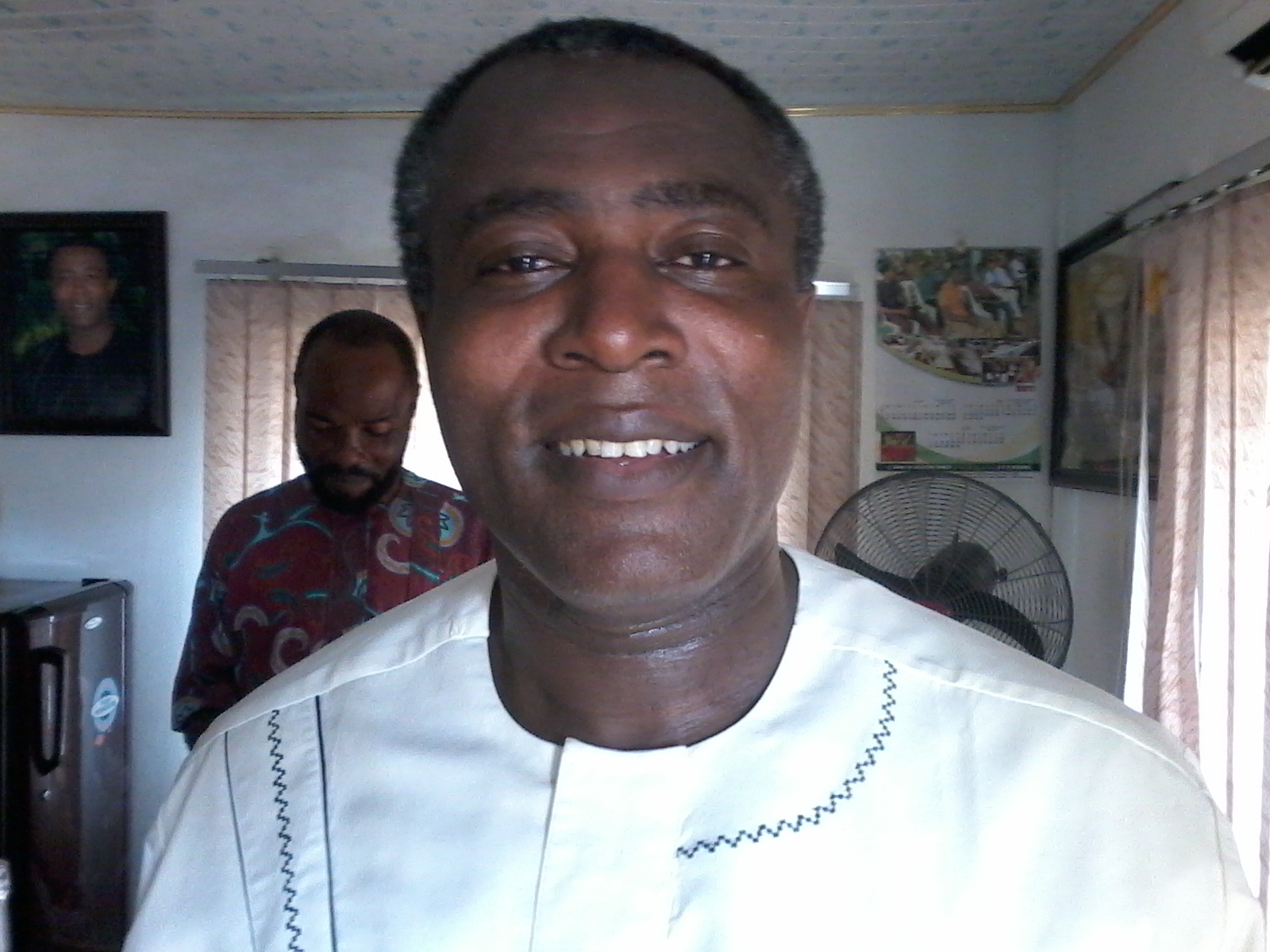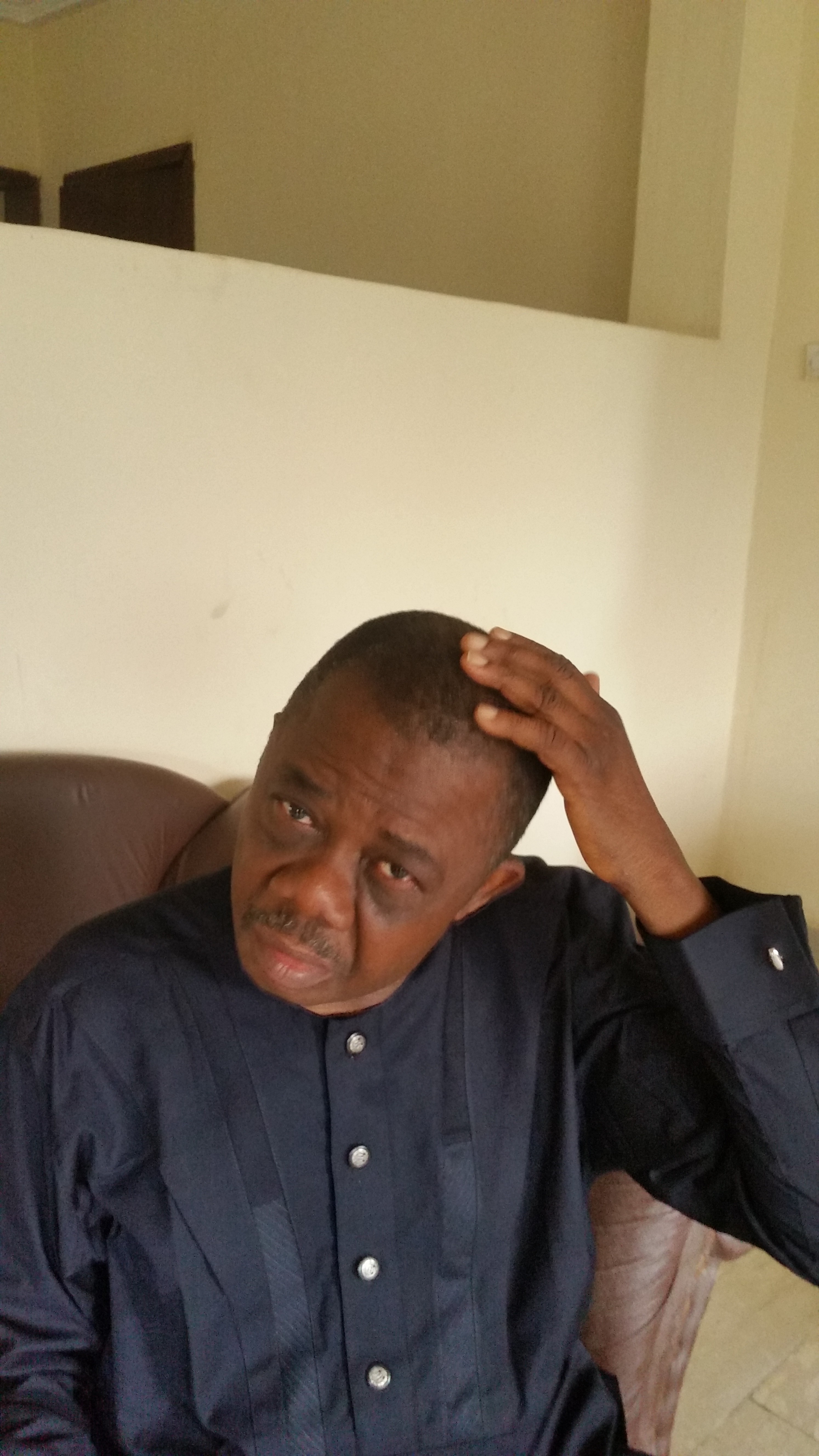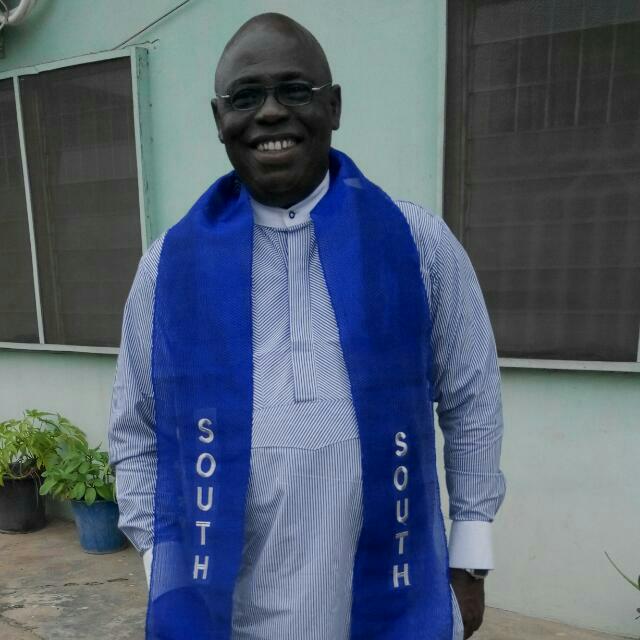We emphasize a need for FG to implement the National ICT policy-Aderounmu

Prof. Adesola Aderounmu is a Professor of Computer Science at the Obafemi Awolowo University, Ile-Ife and the President of Nigeria Computer Society (NCS), which is the umbrella organisation of all Information Technology Professionals, Interest Groups and Stakeholders in Nigeria. In this exclusive interview with Tony Nwakaegho, he talked about the USPF, local content, PPP, government policies and what to do to use this knowledge economy to improve the nations GDP and the welfare of the citizens. Excerpts:
Has the Universal Service Provision Fund (USPF) established as Nigeria’s buy-in and in response to global concern achieved the purpose for which it was established bearing in mind that there are many areas in Nigeria where network connectivity is still very poor or not in existence?
The Universal Service Provision Fund (USPF) was established by the Federal Government of Nigeria to facilitate the achievement of national policy goals for universal access and universal service to Information and Communication Technologies (ICTs) in rural, un-served and under-served areas in Nigeria. Let me briefly mention that through USPF funds, over 3,250 km of Fibre Optic Cable running across the six geopolitical regions is being deployed which will bring access to broadband services for an estimated population of 9,229,182. There is ongoing construction and equipping of 30 Community Resource Centres (CRCs). The USPF had previously provided subsidies in a Public Private Partnership model for Implementers to establish 192 Community Resource Centres across all the geopolitical zones. Institutions that cater for People Living with Disabilities (PLWD) are being provided with connectivity and assistive technologies in line with the principle of ICT inclusion. The University Inter-Campus Connectivity (UnICC) initiative, a collaborative project with the National Universities Commission under the Nigerian Research and Education Network (NgREN) project is being deployed in two phases. The first phase which involves the interconnection of the permanent (Main) campuses of selected Universities and their corresponding Teaching Hospitals or annex campuses through Optic Fibre Cable (OFC) is already completed. A total of 364 public secondary schools are being provided with computers and connectivity under the School Knowledge Centre (SKC) project. The USPF recently handed over an e-Learning Centre to the Management of the National Teachers’ Institute (NTI), Kaduna as part of its mandate of ensuring access to ICT services in the unserved/underserved areas and groups. With all these achievements, I want to say that USPF under Nigerian Communications Commission (NCC) achieved the purpose for which it was established.
What has NCS done in order to emphasize the need for an increase in the literacy rate in ICT using ICT tools like e-Learning in institutions as well as reduce the cost of gaining access to the computer and Internet?
There are several ICT tools; e-learning is one of those tools. E-learning is electronic learning, and typically this means using a computer to deliver part, or all of a course whether it’s in a school, part of your mandatory business training or a full distance learning course. To increase the ICT literacy rate , NCS submitted a position paper to the Federal Government where we emphasized the urgent need for the Federal Government of Nigeria to urgently push for comprehensive broadband access all over the country, roll out, implement and monitor local content policy to encourage MDAs to patronize indigenous software and hardware, establish IT parks using Public-Private-Partnership models, establish Digital Centres in all the 774 LGAs in collaboration with the State Governments, embraced a unified database for Nigeria, give priority to the use of registered local IT professionals and registered local IT companies to execute IT jobs, appoint seasoned IT professionals on the boards of MDAs to maximize and deepen the benefits of electronic governance and digital transformation in Nigeria. We also emphasized the need for the Federal Government to implement the National ICT policy. With the political will on the part of the Federal Government to implement the above will definitely increase literacy rate in ICT.
The country possesses limited capacity to manufacture and assemble ICT equipment and devices, even when there is huge market for ICT equipment.Why is it difficult for us to embrace the local content policy in the development of ICT Industry in the country?
The basic process of computer hardware assembly can be accomplished either in the formal sector involving the establishment of outfits to assemble what is referred to as ‘branded systems’ or in the informal sector involving individuals assembling systems almost invariably from non-standard components to produce what is referred to as ‘clones’ or ‘unbranded systems’. There are at least seven local branded computer hardware firms namely Zinox, Omatek, Beta, Unitec, Balogtek, RLG, and Geniac with their products openly adopted by the government few years ago as “Made in Nigeria Computers” with a marching order to public institutions to patronize these locally assembled computers. Today, the situation is different, as most MDAs still patronize foreign ICT products. Two major reasons for this state of affairs – the lack of local knowledge input in the hardware business coupled with the rather stiff competition with imported systems, lack of after-sales technical backup to enjoy customer allegiance. However, there is the urgent need on the part of the Federal Government of the day to provide incentives for existing and prospective hardware manufacturers to establish assembly plants for a sustainable production of hardware or components, intensify the promotion of local systems through patronage by MDAs, build rapid local capacity (graduated skill) at formal institutions (Technical Schools, Polytechnics and Universities) and establish informal training outfits on hardware maintenance, product coupling and hardware programming respectively, establish 3 assembly plants to commence production of non-essential hardware accessories and simple circuit boards based on local knowledge and upgrade of existing assembly plants to full production of core hardware components.
Nigeria is still faced with the problem of poor data base, hence every organisation request for data here and there. How do you react to this trend and the way forward?
You will recall that late last year, President Muhammadu Buhari directed government agencies to harmonize the collection and usage of biometric data in the country instead of replicating their efforts; in this regard, though this is not the first time the Federal Government would give such directive for all Ministries, Departments and Agencies (MDAs) to harmonize their data in the interest of national development. In June 2014, the Federal Government, under ex-President Good luck Jonathan, issued detailed guidelines for implementation of the presidential directive of Thursday 17th October, 2013, which decried the development of multiple biometric databases in the public sector. As a stakeholder in the Nigeria project and the umbrella organisation of all Information Technology Professionals, Interest Groups and Stakeholders in Nigeria, the Nigeria Computer Society also affirmed her support for this directive. A position paper was prepared and submitted to the Federal Government of Nigeria in November 2016 where we emphasized the need to evolve enabling technology and legal framework for storing, protecting and making available the data acquired and to safeguard the privacy of citizens personal identifiable information (PII) such that the data is not in any way use for adversarial purposes. I am sure the position paper is receiving necessary attention. I want to categorically state that NCS is ready and willing to render technical assistance and support in the monitoring of the capability deployment of this enviable project. If the Harmonization is properly implemented, it will drastically reduce the huge cost implication biometric exercises have caused taxpayers in the past especially in terms of cost of data acquisition, cost of personnel, cost of storage of acquired data and cost of making such data available. This is in addition to the general inconveniences to citizens who repeatedly have to queue long hours for registration.
Why is it near impossible for Public Private Partnership structures to be cemented especially in the area of infrastructural development in Nigeria?
It is clear that governments cannot meet the constantly growing demand for services by acting on their own. There is a need to look for support from other sectors of society. Public-Private Partnerships (PPPs) is one of the most promising forms of such collaboration. If properly designed and implemented, PPPs will definitely assist governments to finance infrastructure investment in a more efficient way. However, the major reason why this model is yet to be successful especially in Nigeria is as a result of lack of trust among parties involved and political will by government.
What is NCS doing to reduce the constraint that affects the use of ICTs in Nigerian academic libraries and the low level of computer culture in the society?
The high cost of Internet Bandwidth remains one of the fundamental reasons why internet access is not present in most of Nigerian academic libraries. To eliminate this problem, the National Universities Commission (NUC) through the World Bank setup Nigeria Research and Education Network (NgREN). The targets of the NgREN were to make broadband universal among our youth in higher institutions and their surrounding communities, make it affordable, connect homes and businesses, and get more people online. However, sustainability of the NgREN is a major problem. As an umbrella body of IT professional, interest groups and stakeholders, we proposed a collaborative model between the Federal Ministry of Communications and Federal Ministry of Education to jointly pull resources together to support NgREN project yearly. We also canvassed for broadband penetration in the rural areas through public-private-partnerships, and establishment of community communication centres as platform for extending ICT to the rural communities with such centres providing voice, Internet connectivity, and ICT training courses. All these will go a long way to reduce the cost of Internet bandwidth and increase the low level of computer culture in the society.
What do you suggest could be done to stop the capital flight in the Nigeria and the loss of billions of Naira due to low patronage of equipment by even Ministries, Departments and Agencies?
The political will by the government of the day to fully implement the local content policy will definitely stop the problem of low patronage of equipment by MDAs. In the digital era, the ICT sector offers the country revenue earning alternatives to oil that are both sustainable and functional. Strategic implementation of the local content policy enables a strategic focus on ICT to secure and address the government’s revenue challenge (both local and foreign generated) independent of oil.
As the President of NCS and a Political Aid to Communications Minister, what do you think could be done to put the ICT industry, institutions and the citizens in proper perspective and for all to enjoy the dividend of democracy?
The government, knowledge institutions and private ICT organizations must collaboratively come together to invest in technology innovation within a frame of well-defined roles and functions which are non-mutually exclusive. This calls for readiness on the part of the Institutions, political will by government, and financial support from private institutions and leadership by the three actors.








